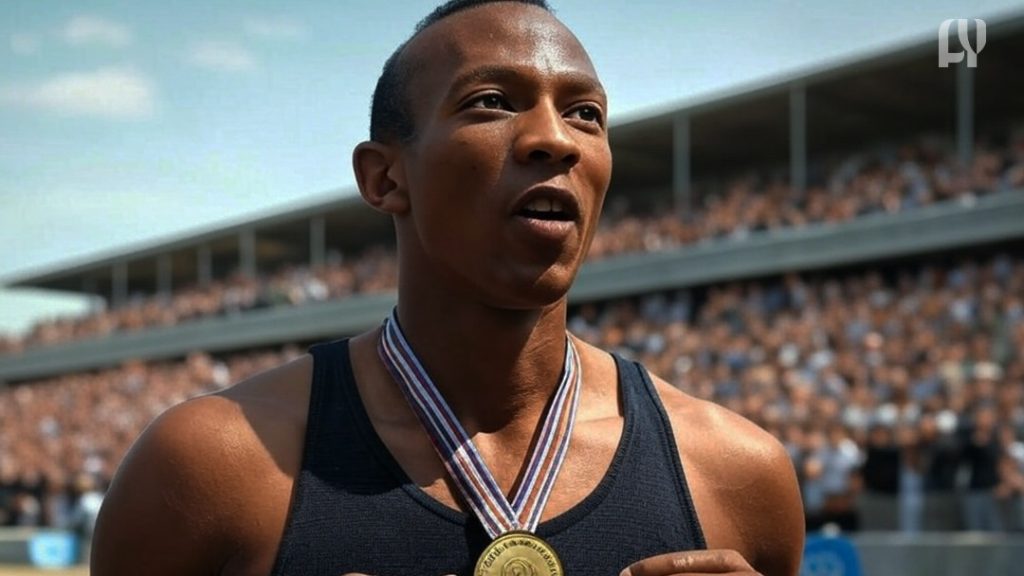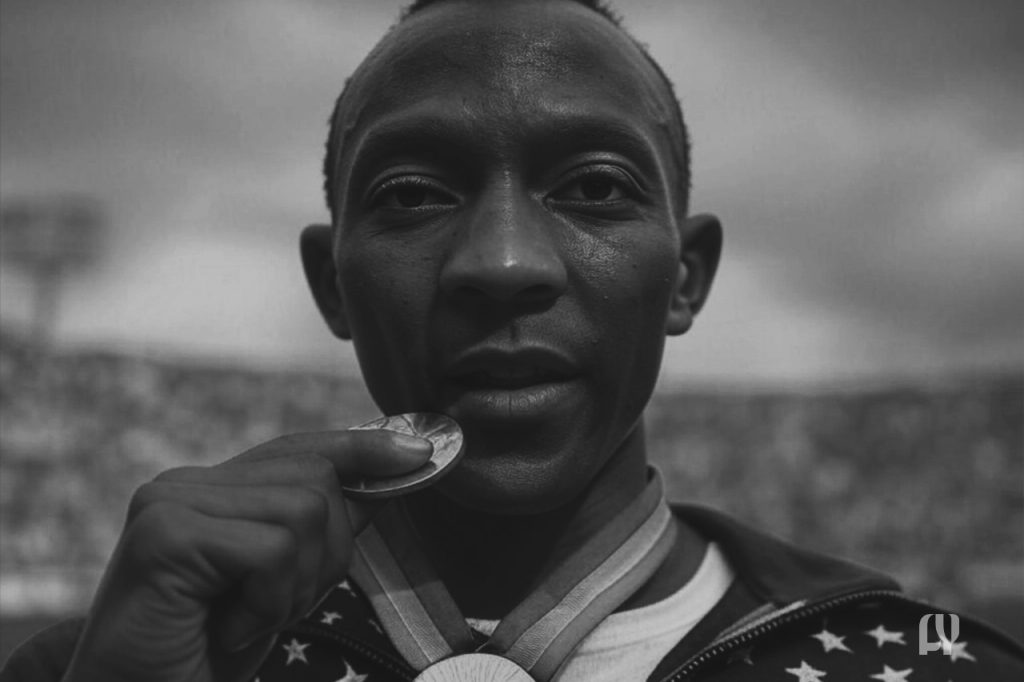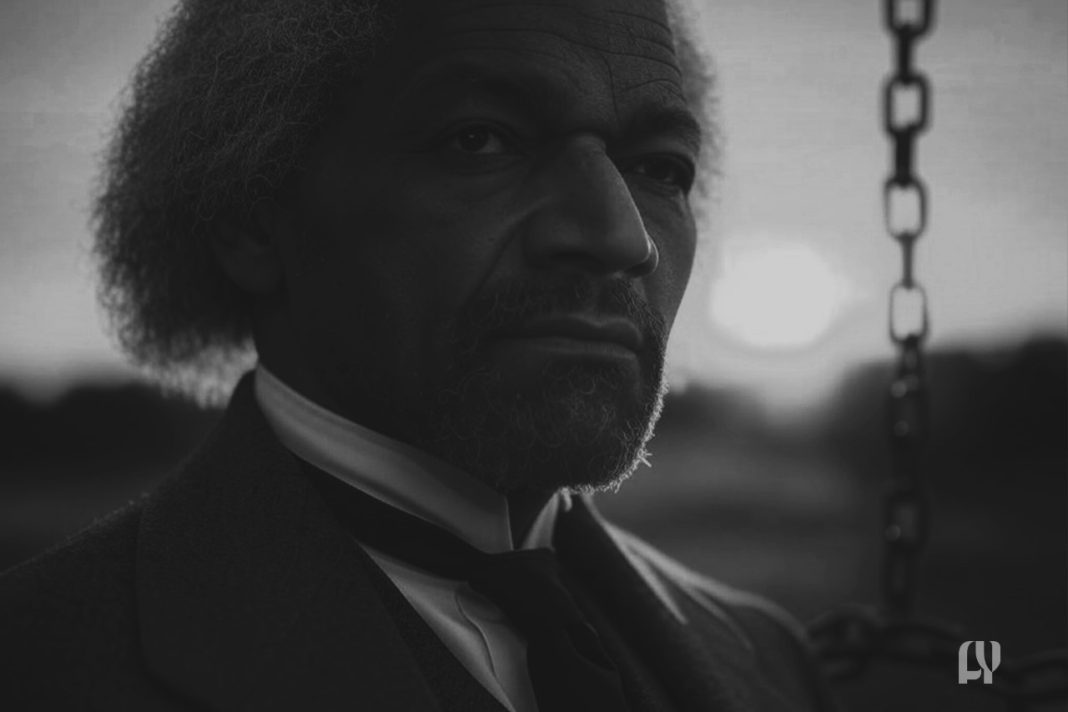Jesse Owens: The Man Who Outran Prejudice
A Legacy Forged in Berlin’s Shadows
In the heat of August 1936, a 23-year-old Black American athlete named Jesse Owens did the unthinkable. This happened under the glaring gaze of Adolf Hitler and the swastika-strewn stadium of Berlin. Over four days, he shattered the myth of Aryan supremacy perpetuated by Nazi Germany.
He won four Olympic gold medals. This was in front of a dictator who had vowed to showcase white dominance. Owens’ story isn’t just about speed. It’s a tale of resilience against racism and quiet defiance. His legacy still echoes from the dusty tracks of Alabama to the streets of Soweto.
From Cotton Fields to Cleveland: The Making of a Champion
Born James Cleveland Owens in 1913 in Oakville, Alabama, Jesse’s early life was steeped in poverty. The grandson of enslaved people and son of a sharecropper, he picked cotton with his family. They fled the South’s oppressive Jim Crow laws for Cleveland, Ohio, during the Great Migration. It was there, at age nine, that a teacher misheard his drawled initials “J.C.” as “Jesse”—a name that stuck.
I wanted to show the world that a Black man could outclass anyone.
Young Jesse’s talent for running sparked early. At Fairview Junior High, he broke his first records, but his path was far from smooth. To support his family, he worked as a lift operator and grocery clerk. He even cleaned spit tools at a shoe repair shop. Yet, by high school, his raw speed had coaches whispering about “the next big thing.” At Ohio State University, Owens faced segregation. He lived off-campus with other Black athletes and ate at “Blacks-only” diners. Despite these challenges, he became a track sensation. In 1935, at the Big Ten Championships, he shattered three world records and tied a fourth—in just 45 minutes.
Berlin 1936: The Olympics That Shook the World
The Berlin Olympics were Hitler’s grand propaganda spectacle. The Nazi regime had scrubbed the city of antisemitic signs, hoping to charm the world while hiding its brutal policies. For Owens, the games were a moral crossroads. Activists urged Black athletes to boycott. Still, he decided to go. He later said, “I wanted to show the world that a Black man outclass anyone.”

What followed was history. On 3 August, Owens won the 100m in 10.3 seconds. The next day, he leapt to gold in the long jump, aided by an unlikely ally: German athlete Luz Long. After Owens fouled his first two jumps, Long advised him to adjust his mark. Owens qualified, then soared to victory. The two men walked arm-in-arm, a silent rebuke to Hitler’s hate. By 9 August, Owens had claimed gold in the 200m. He also won gold in the 4x100m relay. He became the first American to win four golds in a single Olympics.
But what did Hitler think? Contrary to popular myth, the Führer didn’t “snub” Owens. After shaking hands with German winners on the first day, Olympic officials told Hitler to greet all or none. He chose none. Owens later joked, “I didn’t go to Berlin to shake hands with Hitler anyway.”
The Bitter Aftertaste of Glory
Returning to the U.S. as a hero, Owens expected opportunities. Instead, he faced the same racism. Parades were held, but he rode freight elevators to avoid segregated hotels. President Franklin D. Roosevelt never invited him to the White House. With no endorsements (amateur rules barred paid deals), Owens raced horses for cash and bankrupted a dry-cleaning business. He even faced the IRS over back taxes.
Why did he stop running? By 1936, amateur athletics offered no financial safety net. Owens retired, later becoming a playground director, sports promoter, and eventually a motivational speaker. His “net worth” remained modest, but his influence grew.
The Later Years: A Quiet Revolution
In the 1950s, Owens found his voice as a civil rights advocate, though his stance sometimes drew criticism. He praised the U.S. over Soviet critiques during the Cold War, which some saw as downplaying domestic racism. Yet, his mere presence—a Black man touring globally as a symbol of excellence—chipped at prejudice.
We all have dreams. But to make dreams come into reality, it takes an awful lot of determination, dedication, self-discipline, and effort.
Health declined in his later years. A lifelong smoker, Owens died of lung cancer in 1980 at 66. But his legacy endured. His 1936 medals, once symbols of a regime’s humiliation, became beacons of hope.
Owens’ Echo in South Africa
For South Africans under apartheid, Owens’ story resonated deeply. His victories mirrored the defiance of athletes like Zola Budd and the excluded non-white sportsmen of the era. Nelson Mandela later cited Owens as an inspiration, proving that “sport can create hope where once there was only despair.”
The Questions You Asked
- Cause of Death: Lung cancer, 31 March 1980.
- What Made Him Special: A blend of unmatched speed and grace under political pressure.
- Hitler’s Reaction: A mythologised snub, but Owens’ true victory was uniting audiences worldwide.
- Why He Stopped Running: Poverty and racial barriers forced him to pivot.
A Champion’s Immortality
Jesse Owens’ life wasn’t just about races won; it was about barriers broken. In a world still grappling with prejudice, his story whispers a timeless truth: greatness can’t be caged by hate. As he once said, “We all have dreams. But to make dreams come into reality, it takes an awful lot of determination, dedication, self-discipline, and effort.”

FAQs Jesse Owens: Breaking Barriers Through Sport
What was Jesse Owens’ cause of death?
Jesse Owens died of lung cancer on 31 March 1980, after decades of smoking.
What made Jesse Owens special?
Owens shattered racial and athletic barriers. He won four gold medals at the 1936 Berlin Olympics. By doing so, he defied Nazi propaganda and global racism.
How did Hitler react to Jesse Owens’ wins?
Hitler did not publicly acknowledge Owens. Olympic officials advised him to greet all winners or none, though myths of a direct snub persist.
Why did Jesse Owens stop running?
Racism and financial struggles forced Owens into early retirement. Amateur rules barred sponsorships. Opportunities for Black athletes were scarce.
How did Jesse Owens change the world?
His victories challenged white supremacy myths, inspired marginalised communities globally, and became a symbol of resistance against oppression.
For “Forever Yena” readers, Owens’ journey is a reminder. Much like our own Madiba’s, it shows that the human spirit can outrun even the heaviest chains.




